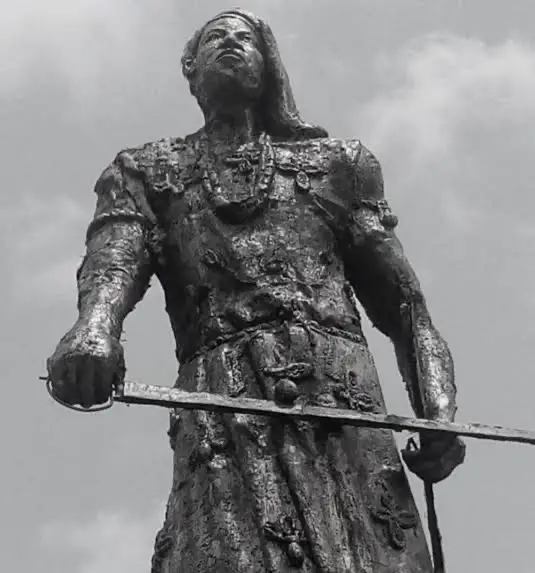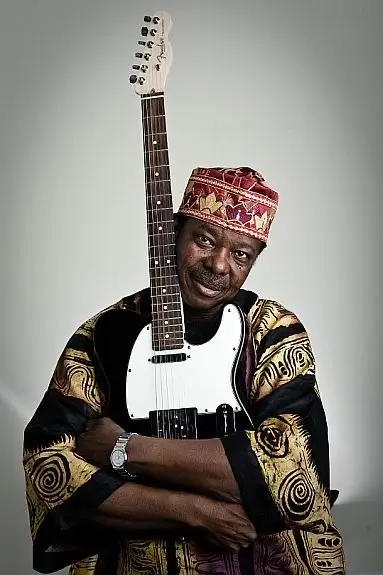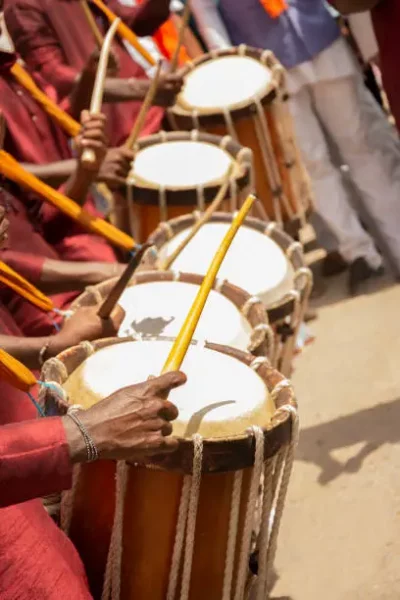DiscoverYoruba.com is your one-stop for embracing Yoruba culture, entertainment, and history unfolding.
Do you know it’s currently the 38th LISABI FESTIVAL in Abeokuta, Ondo state, Nigeria? Yes, our article today features one of the most celebrated heroes of Egbaland, Lisabi the Warrior.
Lisabi didn’t start out as a warrior though. He was first a farmer, a hardworking one, who found delight in doing his own work, one day at a time. He lived a simple life, content with his circle of friends and at peace with the people around him. Well, that was before the Tribute Collectors for the Oyo Empire crossed a line.
Stay with us as we discuss the life of this great warrior, his legacy, the festival and how you can participate from anywhere in the world. This story is so good, it had to be told with one of the best movie productions on Netflix, charting the number one spot on Netflix’s Nigeria film chart just three days after its release. If you haven’t seen the movies yet, I’m low-key jealous—you’re about to experience the magic for the very first time. I wish I could relive that feeling of awe and wonder all over again.
Let’s get into the life of Lisabi.

The Life of Lisabi
In the old Yoruba lands, several centuries ago, there was once a powerful empire with an iron-grip on all the neighbouring kingdoms. This was the great Oyo empire and its might was rigid and absolute, enforced through a network of merciless tribute collectors called Ilaris. They acted under the permission and authority of the king himself, the Alaafin of Oyo. The Ilaris maintained dominance and control over the people with tribute collection and something more -whips, bloodshed and fire. They instilled great fear that anyone that stood up against them in their unjust acts would not live to stand another day.
Lisabi: The Uprising opens with an agonizing scene. While tributes were being presented to the Alaafin, one Ilari dragged in a man whose body was barely holding together. He had been dragged by the collector’s horse for what appeared to be a long distance and had been beaten beyond recognition. What was the offender’s crime? He had refused to pay tributes.
However, this beaten man was no common man. He is Olu Olodan, the king of a small proud town accused of shortchanging the Alaafin. The Ilaris had already razed his palace to the ground, murdered some of his people and humiliated him all the way to the Alaafin’s feet for the same reason. But Olodan showed no fear in the face of his assured death and reminded the revered Alaafin that retribution is coming.
Meanwhile, in Igbeyin, Egba, a humble and hardworking farmer named Lisabi tends to the ground with bare hands and a boundless heart. He led a quiet but respected life, and was known for his integrity, work ethic and warmth. His clash with the Ilaris doesn’t begin with politics or even tribute collection. It began with a heartbreak that left a deep scar and changed the man he once was.
You see Lisabi had a bestfriend, Osokenu, who was finally getting married to the woman of his [Osokenu] dreams. The day of the wedding had come and the villagers were singing, dancing and celebrating with Osokenu. This was until an Ilari that had previous conflict with Sokenu sighted him and decided to ruin his joy. On the bride’s way to the venue, the Ilaris ambush her, assault her and massacre members of her entourage.
Maddened by rage, Osokenu goes on a rampage, cutting down collectors as if he was possessed by Ogun until he got gunned down on the day that was supposed to be one of his happiest. His bride, unable to bear the pain and shame, took her own life.
This tragedy awakened something deeper in Lisabi. The soil he found contentment in tilling became soiled in injustice. But he was a patient man. To make any move, he knew he had to be smart and calculative. So instead of going straight for vengeance, he calmly suggested a new system to the villagers: Organized farming teams, Egbe Aaro, to farm enough produce to feed themselves and give sumptuous tributes to the Ilaris.
The villagers must have seen this act as submission but Lisabi could see steps ahead that it was the foundation for the Uprising. Because the thing about oppression is it never lasts forever. The time of reckoning was approaching. And when that time came, Lisabi and his warriors, the Aaro, stepped out of the shadows and marched forward, backed by their ancestors and the Orishas, to put an end to an era.
Lisabi: The Uprising and A Legend is Born is a breath-taking blend of history, folklore and the raw intensity of Yoruba storytelling. We don’t want to give too much information away so you get to watch the movie and its sequel unfold on screen. The whole experience in every scene is nothing short of electric so we can’t wait for your review. This Lisabi Festival, appreciate the history long before you by enjoying this cinematic sensation with your family and friends.

Lisabi’s Legacy and Historical Significance
Although the film is a creative blend of historical facts and fiction, Lisabi’s legacy for Egba is very real. Lisabi Agbongbo Akala is remembered as a renowned national hero, a man who put together strategy, communal unity, and spirituality to overthrow the tyranny of the Ilaris and end the savage dominance of Oyo over Egbaland in the 18th century.
He wasn’t a general or king by title, but his leadership of the Egbe Aaro, a team of youth farmers, helped him organize a secret rebellion. They systematically eliminated the Ilaris in Egba towns under his leadership and weakened Oyo’s grip over them.
The rebellion wasn’t met with silence from Oyo. It led to a military retaliation from this powerful empire. But it ushered in the beginning of a new dawn—the independence of Egba and their subsequent migration to Abeokuta, where they became a new city fortified by unity and courage.
Lisabi means more than a historical figure to the Egbas, he is a symbol of resistance, dignity, and the power that lives in ordinary people when they are united by a worthy cause. Every year, the people of Abeokuta honor him with the Lisabi Festival in a celebration of courage, culture, and ancestral pride. His story is told through rhythmic dance and drums with melodious chants, so no child of Egbaland ever forgets they come from a line of warriors
Conclusion
Yoruba festivals are always energetic, colorful, and full of life—but beyond the drumming and dancing, they carry powerful stories, like that of Lisabi. His story isn’t just one of war and bloodshed—it’s a story of courage, sacrifice, strategy, and unity.
The moral lesson of the movie is clear: Oppression can only thrive when people are divided—but when they unite with purpose, even the mightiest empire can fall. Despite the violence, the film delivers deep messages about leadership, justice, and the spirit of community.
Lisabi’s birth and death were shrouded in mystery, and to this day, many believe he was no ordinary man. But one thing is certain—he is remembered as the breaker of chains and the hero who dared to defy tyranny. That’s why the Egba people, both at home and across the globe, still celebrate him every year.
Like the saying goes, “A hero is often not honored in his own hometown.” But Lisabi’s legacy lives on—etched in history, enshrined in culture, and now brought to life on screen.
If you’ve seen the movie, let us know what you think. And if you haven’t, go watch it. This is one piece of Yoruba history you won’t want to miss.
Thanks for reading our article!
References:
- Wikipedia – Lisabi: the Uprising
- Modupe Apoola Encyclopedia- Lisabi
- Oriire – The Roar of Freedom: A Celebration of Lisabi and the Egba Spirit












